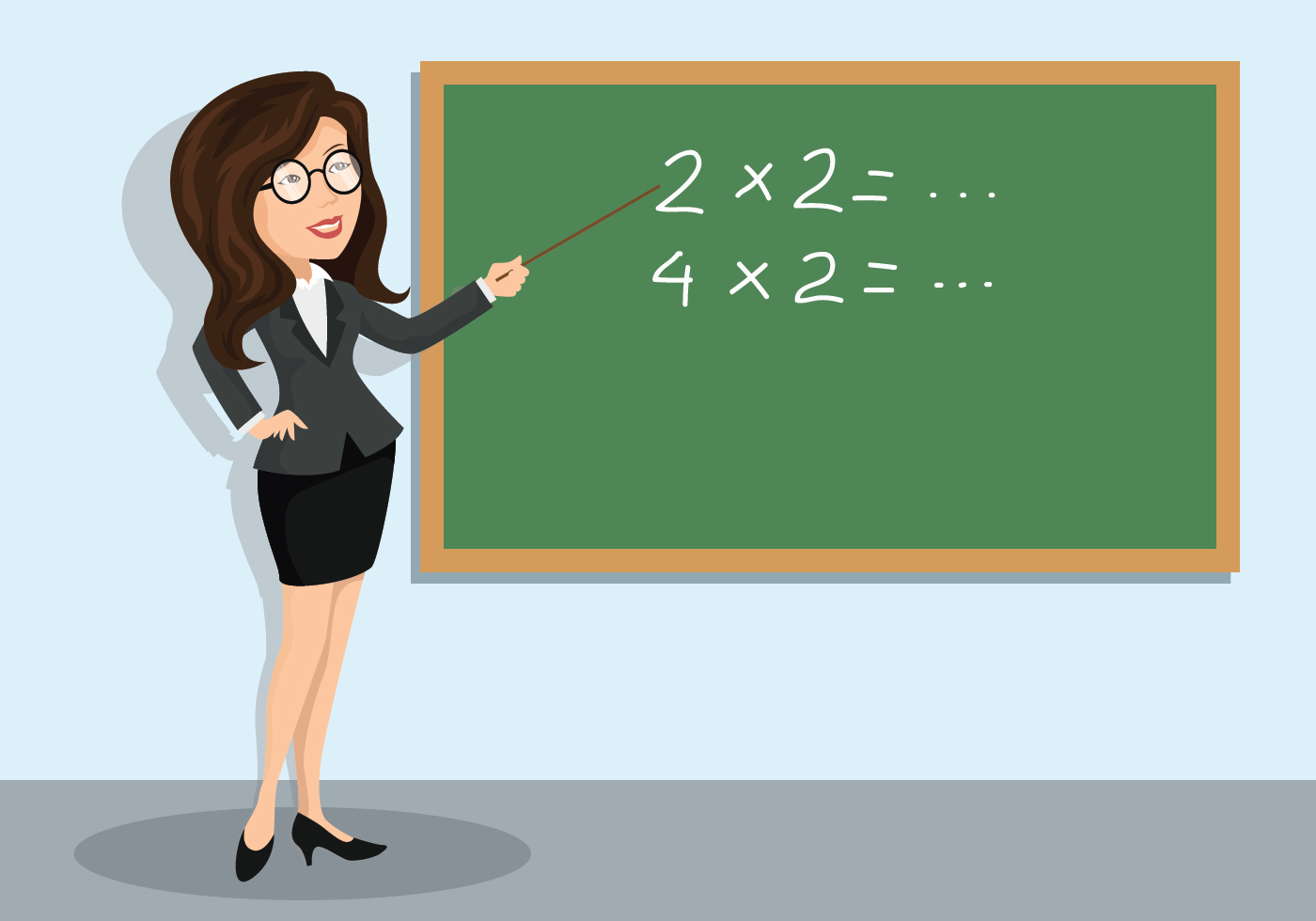How experienced math teachers reshape teaching approaches for diverse learners
Wiki Article
Browsing Sector Standards in Mathematics: A Complete Guide to Best Practices and Leadership for Professors Quality
Steering sector requirements in mathematics requires a nuanced understanding of advancing methods. Educators has to align their curriculum with these criteria while employing innovative teaching methods. Continual professional development stays vital for fostering professors excellence. By checking out the intersection of educational program design and student interaction, one can uncover approaches that boost academic results. The effects of these techniques prolong past the classroom, triggering further consideration of their broader effect on maths education.Understanding Present Sector Standards in Mathematics
As sectors progressively rely upon data-driven decision-making, comprehending existing industry requirements in math has ended up being important. Mathematics serves as the backbone for data analysis, modeling, and analytical reasoning throughout various industries. The spreading of big data demands a durable grasp of mathematical concepts, consisting of calculus, direct algebra, and likelihood theory. In addition, familiarity with mathematical software application devices is important, as they help with intricate computations and data visualization.Industry standards frequently highlight the importance of mathematical roughness and real-world application, motivating experts to embrace analytical techniques rooted in measurable reasoning. Furthermore, interdisciplinary understanding, particularly in fields such as economics, design, and innovation, enhances the capacity to address complicated challenges. Organizations are progressively seeking people that not just possess mathematical skills but also recognize their applications in service contexts. Straightening educational frameworks with these developing criteria is essential to prepare trainees for the needs of a data-centric labor force.
Finest Practices for Curriculum Development
Effective curriculum development in mathematics calls for a tactical technique that integrates sector standards and finest techniques. Professors must take part in a complete requirements assessment to determine the skills and understanding required by pupils in today's labor force. Aligning educational program with identified requirements, such as the Usual Core or specific accreditation needs, guarantees significance and rigor.Furthermore, collaboration among faculty members is vital for sharing understandings and promoting a cohesive curriculum. Integrating feedback from sector stakeholders can supply important perspectives on arising patterns and necessary proficiencies.
Integrating modern technology and varied resources in the educational program can improve learning experiences, making them much more relevant to real-world scenarios. Routine examination and modification of the educational program based upon trainee efficiency and evolving market demands will certainly aid keep its relevance. Eventually, a well-structured educational program that complies with these ideal techniques prepares students for success in both professional and academic environments.
Involving Trainees With Ingenious Training Techniques
Cutting-edge teaching approaches play a crucial function in improving student involvement in mathematics. By including technology, such as interactive software program and online systems, instructors can produce immersive learning experiences. These devices allow students to picture complex concepts, transforming abstract ideas into substantial understanding. Collective understanding strategies, such as team projects and peer teaching, cultivate a feeling of area, motivating students to share problem-solving methods and varied viewpoints.Furthermore, real-world applications of mathematical concepts can make lessons much more pertinent and stimulating. For example, integrating stats with current events or utilizing mathematical modeling to attend to social concerns can captivate trainees' rate of interest. Gamification methods, where aspects of video game layout are put on discovering, likewise inspire pupils to participate actively and delight in the process of exploration. Inevitably, these innovative teaching techniques not only involve students however also cultivate a deeper appreciation for maths, leading the method for future academic and specialist quests.
Fostering a Society of Continual Enhancement
While fostering a culture of continuous enhancement in mathematics education and learning, teachers must focus on recurring expert growth and joint techniques. This commitment assures that professor are furnished with the most up to date instructional approaches and content expertise (experienced math teachers). Normal workshops, peer observations, and feedback sessions facilitate a setting where teachers can share best methods and gain from one anotherCarrying out reflective practices is essential. Professors should regularly assess their teaching techniques and pupil outcomes, making use of information to notify adjustments and technologies. Encouraging open dialogue regarding challenges and successes likewise great post to read advertises a development attitude amongst teachers.
In addition, the incorporation of pupil comments into training course analyses can offer beneficial insights right into the efficiency of teaching strategies. By proactively taking part in these procedures, teachers strengthen a common responsibility for renovation, eventually boosting the instructional experience for trainees and cultivating a prospering scholastic neighborhood dedicated to excellence in maths education and learning.
Management Methods for Faculty Quality
Cultivating faculty excellence requires a calculated approach to leadership that stresses clear communication, shared vision, and shared assistance. Effective leaders in academic community cultivate an atmosphere where faculty can thrive by promoting partnership and encouraging ingenious teaching methods. They carry out routine comments devices, enabling for constant evaluation and enhancement of important link both teaching approaches and student involvement.
Leaders must prioritize specialist development chances, guaranteeing professor are furnished with the most recent instructional tools and industry methods. Establishing mentorship programs can better improve the development of much less skilled professors, producing a supportive network that bolsters confidence and expertise.
Furthermore, recognizing and compensating accomplishments grows inspiration and dedication amongst faculty. By aligning departmental goals with institutional missions, leaders can unify initiatives toward shared goals. Ultimately, these management approaches not just boost the quality of instruction however likewise add to a vibrant scholastic neighborhood that prioritizes excellence in maths education and learning.
Often Asked Inquiries
How Can I Keep Updated on Evolving Mathematics Standards?
To stay updated on advancing mathematics criteria, one must regularly speak with professional organizations, go to workshops, subscribe to appropriate journals, and join online discussion forums, promoting links with peers and professionals in the field for ongoing insights.What Are Typical Pitfalls in Curriculum Growth to Stay Clear Of?
Common challenges in curriculum advancement consist of inadequate stakeholder engagement, neglecting diverse finding out requirements, lack of alignment with standards, failure to include assessments successfully, and insufficient sources for application, which can impede total instructional efficiency and pupil success.Exactly how Do I Measure Student Interaction Effectively?

What Resources Are Readily Available for Professors Professional Growth?
Various resources for professors expert growth consist of workshops, on the internet training courses, peer mentorship programs, academic conferences, and institutional grants. These opportunities provide possibilities for ability cooperation, networking, and enhancement, fostering constant growth within the academic neighborhood.How Can Faculty Team Up on Ideal Practices in Mathematics Education?

By discovering the intersection of curriculum style and pupil engagement, one can uncover approaches that enhance educational results. Faculty must engage in a thorough needs assessment to identify the abilities and expertise needed by trainees in today's workforce. Routine assessment and modification of the curriculum based on student efficiency and progressing market demands will aid preserve its importance. Innovative teaching methods play a pivotal duty in enhancing trainee engagement in maths. Faculty needs to regularly assess their teaching techniques and pupil results, making use of data to educate developments and changes.
Report this wiki page